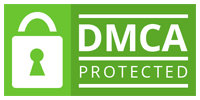In today's digital age, a fast-loading website is crucial for online success. Studies have shown that visitors are likely to abandon a website that takes longer than 3 seconds to load, which can lead to a significant loss in potential customers and revenue. Therefore, optimizing website speed has become a top priority for online businesses.
In this blog, we will discuss the importance of website speed and provide some tips on optimizing your website for faster load times.
Why is website speed important?
Website speed plays a vital role in the overall user experience. A fast-loading website can significantly impact the following:
-
User Engagement: When a website takes too long to load, users are more likely to abandon it and move on to another website. This can lead to a loss of potential customers and revenue.
-
Search Engine Optimization (SEO): Google considers website speed as a ranking factor for search results. Faster websites will likely rank higher in search engine results pages (SERPs), increasing visibility and traffic.
-
Conversion Rates: Faster websites have higher conversion rates. When visitors have a positive user experience, they are more likely to stay on the website and take the desired action, such as making a purchase, filling out a form, or subscribing to a newsletter.
How to optimize your website for faster load times?
-
Optimize Images: Large image files can slow down your website's load time. Therefore, it is essential to optimize images by compressing them without sacrificing quality. You can use image compression tools or plugins to reduce the size of your images.
-
Minimize HTTP Requests: Every time a page loads, it makes multiple HTTP requests to fetch the required resources, such as images, stylesheets, and scripts. Reducing the number of HTTP requests can significantly improve website speed. You can achieve this by combining multiple files into one, using CSS sprites, and reducing the number of plugins.
-
Enable Caching: Caching allows your website to store static files, such as HTML pages, images, and stylesheets, on the user's device. This reduces the amount of data that needs to be downloaded every time a page loads, resulting in faster load times. You can enable caching by using plugins or adding cache-control headers to your website's code.
-
Use Content Delivery Networks (CDNs): A CDN is a server network that stores and delivers website content to users based on their location. This can significantly reduce the distance between the user and the server, resulting in faster load times. You can use CDN services like Cloudflare or Akamai to deliver your website's content.
-
Optimize Your Website's Code: Bloated or poorly coded websites can slow down your website's load time. Therefore, it is essential to optimize your website's code by removing unnecessary elements, such as whitespace and comments, and minifying CSS and JavaScript files.
Conclusion
In conclusion, website speed plays a crucial role in the success of online businesses. A fast-loading website can significantly impact user engagement, SEO, and conversion rates. By optimizing images, minimizing HTTP requests, enabling caching, using CDNs, and optimizing your website's code, you can significantly improve your website's load time and provide a positive user experience. Remember, a fast website is a happy website!





Leave a Comment